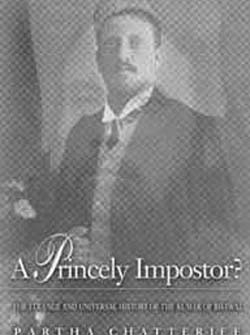When Natalie Zemon Davis wrote The Return of Martin Guerre (1983), a book just over 150 pages, it became influential in professional history circles because, its brevity notwithstanding, it cut the barbed-wire fence which separates history from storytelling. Davis’s book is unusual in being wonderful as both story and history.
The tale, in brief, was this: At the same time that Babur set off for greener pastures in the direction of Hindustan, a well-off peasant in the French Basque country set off eastwards to resettle his family. In his adopted home he shortened his name to ‘Guerre’, farmed land, and raised a son called Martin Guerre. The son inherited his father’s farm, married a local lass called Bertrande, and for some years caused her much unhappiness because, as they euphemistically said in the army, he couldn’t present his salutations properly. A wise woman was called in to remedy Martin’s organic lassitude, her wisdom worked, and the result was that Martin and Bertrande soon had a son. Unfortunately, Martin fell out with his father in a property dispute and was kicked out of his house. He disappeared into Spain, where he signed up as an army mercenary and befriended a fellow soldier called Pansette, who, it turned out, was adept at mimicry and had been an actor of sorts.
This Pansette is actually the hero of the story, for he soon acquired such intimate knowledge of Martin Guerre’s past that he decided to try his hand at assuming the identity of his friend. Eight years after Bertrande lost her husband, a man called Martin Guerre showed up at her house, saying he was back to claim her and his property. The wife and villagers were initially sceptical, but he looked the part and remembered everything very well. What clinched matters in his favour was Bertrande’s discovery that this new incarnation of her husband was an ardent lover sufficiently aroused by her charms to obviate the services of further wise women. But rapacious relations still managed to poison Bertrande’s ears, arguing the new man was an impostor out to swindle her and them. Bertrande was forced to bring a case against her husband in the local court.

